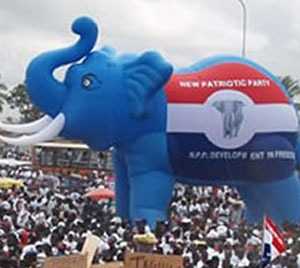A post-mortem report by the New Patriotic Party (NPP) has pinpointed bitter internal divisions and unresolved local conflicts as decisive factors behind its dramatic loss in Ghana’s 2024 elections.
The findings, compiled by a party fact-finding committee, reveal how simmering disputes over candidate selection and allegations of betrayal fractured unity in critical constituencies, eroding voter confidence and campaign cohesion.
In Asante Akim Central, the fallout from a broken political promise became emblematic of the party’s broader struggles. Local officials disclosed that the incumbent Member of Parliament (MP) had reportedly pledged not to seek re-election in 2024—a commitment later abandoned. The reversal triggered a revolt among grassroots supporters, many of whom refused to back the MP’s renewed bid.
“The division was irreversible. Once trust collapsed, even loyalists stayed home on voting day,” a constituency officer lamented. While the MP’s camp denied reneging on any formal agreement, the rift proved fatal: the NPP lost both the parliamentary seat and significant presidential votes in the area.
Similar fractures emerged in Adansi Asokwa, where longstanding grievances over the MP’s leadership style and alleged manipulation of party primaries came to a head. Despite a track record of infrastructure projects, including rural electrification under former President John Kufuor, the MP faced accusations of sidelining rivals through “album manipulation”—a practice involving the exclusion of legitimate delegates from voter rolls. “He turned from a unifier into a polarizing figure. The resentment built over years, and when elections came, the party paid the price,” a local organizer explained. The disaffection translated into apathy, with many traditional NPP supporters either abstaining or defecting to rival candidates.
Analysts argue these cases reflect a systemic crisis within the NPP: a failure to manage internal democracy and address grassroots disillusionment. The party’s hierarchical structure, long criticized for favoring incumbents and elite interests, appears to have backfired as younger members and lower-ranking officials demanded accountability. “This wasn’t just about individual MPs,” noted Accra-based political scientist Dr. Ama Asante. “It exposed a generational and ideological clash—between old-guard politicians clinging to power and a base demanding inclusivity and transparency.”
The report’s revelations arrive as the NPP grapples with its first electoral defeat in over a decade, raising urgent questions about its path to renewal. While some factions call for sweeping reforms to candidate selection processes and grievance resolution mechanisms, others remain entrenched in blame games. For now, the party’s ability to heal its internal wounds—and reconnect with disillusioned voters—will determine whether 2028 marks a temporary stumble or the onset of a prolonged decline.
As one committee member starkly concluded: “We didn’t lose to the opposition alone. We lost to ourselves.”
Send your news stories to newsghana101@gmail.com
Follow News Ghana on Google News















